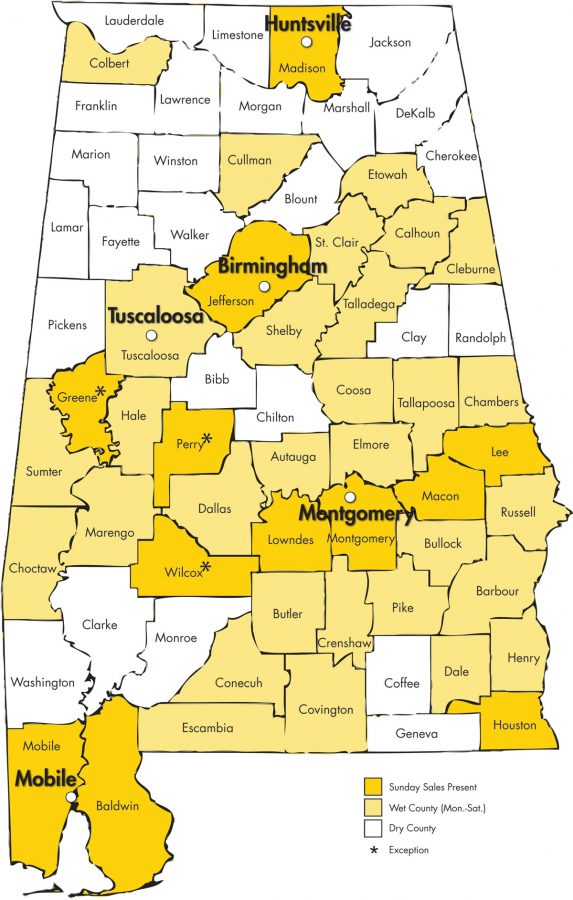Churches may soon not be the only locations serving wine to their patrons on Sunday afternoons.
On Feb. 22, Tuscaloosa voters will have the opportunity to allow Sunday alcohol sales between noon and 9:30 p.m. in a countywide vote scheduled for that day.
According to an article published in USA Today, Sunday alcohol sales are on the rise in the U.S., as 36 states now allow Sunday liquor and alcohol sales and dry towns across the country are changing fast.
In November 2009, Cullman, Ala., a traditionally dry location, voters passed a law that ultimately turned the previously dry location into a wet one.
“For over 70 years, voters came out and always voted this law down,” said Cullman Mayor Max Townson. “Back during the war, women would come out and vote it down when their men were at war. It was surprising to me to see that, in this vote, it passed. The economy must have played a big impact in the vote.”
Townson said he didn’t know what to expect the day after voters legalized alcohol sales in Cullman.
“There was no ordinance on the books,” he said. “So the next day, we just thought we could go ahead and start selling alcohol and that wasn’t the case.”
Up until November, Cullman, unlike Tuscaloosa, did not allow any alcohol sales to take place in the county. The law voters passed that day called for legalized sales of alcohol every day of the week except Sundays.
“It was a long, drawn out process,” Townson said. “Today, we’ve got about 25-30 stores that are waiting for the state to approve them. I expect we’ll be selling alcohol within the next 10 days though.”
As of November, 12 counties and five cities across Alabama have legalized some form of Sunday alcohol sales. Of all the cities across the state, Tuscaloosa is the largest to not currently allow Sunday alcohol sales.
In an e-mailed statement in March 2010, Tuscaloosa Mayor Walt Maddox said that in addition to being equitable, the passing of this bill would afford revenue from tourism for Tuscaloosa.
“This piece of legislation would significantly enhance our tourism industry,” Maddox said in the e-mail. “Today, 22 cities in Alabama, plus every major city, possess the right to seven-day sales, and this is used against our community in recruiting conferences. If we want to dramatically improve our hotel and restaurant industries, this legislation is critical.”
Like Maddox, Townson said the passing of alcohol-related bills will help economically.
“I think the timing of Cullman’s vote really impacted voters,” Townson said. “With the economy being the way it is, it ensured that Cullman residents who do consume alcohol would not have to drive out of the county to get it. It helps keep tax dollars in Cullman.”
The bill, having successfully passed through both the state House and Senate, now awaits the move of Tuscaloosa voters next Tuesday.










